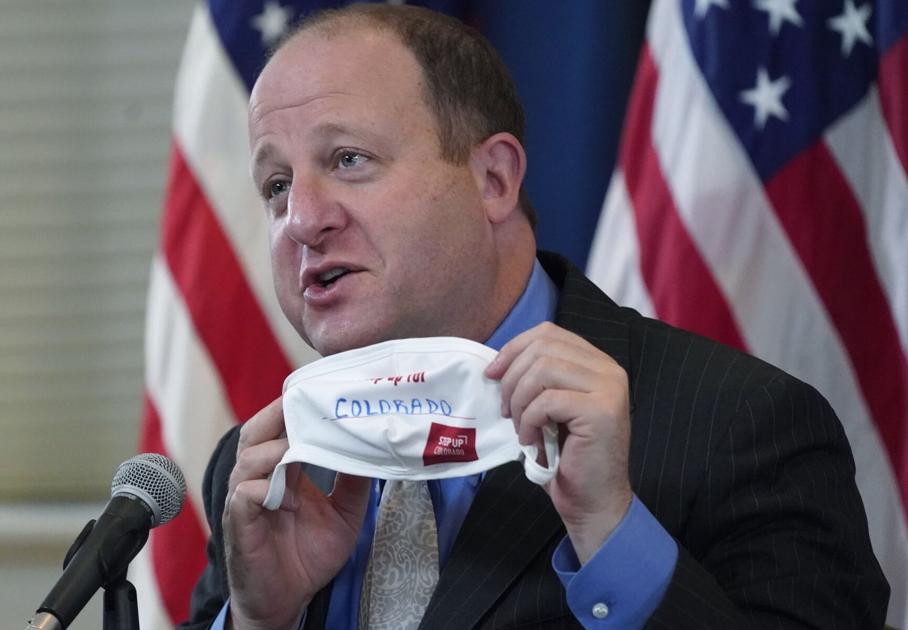Colorado will begin vaccinating those 65 and older in the coming weeks, Gov. Jared Polis said Tuesday, the second recent step by the state to inoculate older residents in the first phase of vaccine distribution.
Polis announced the change to the state’s vaccine priorities at a Tuesday news conference, shortly after the federal government announced it was giving increased priority to those older than 65.
Still, the state will proceed forward with those 70 and older first; those over 64 will follow.
“We of course will be adopting our guidance, we’ll be announcing that in a few days,” the governor said. “It’ll take place in a few weeks because we don’t want to squeeze out an 90 year old for a 62 year old.”
This latest shift in vaccine priority, one of several in the past month, will not be made or officially announced until later this month, when the state has made more progress in vaccinating older residents.
Thee state has largely moved past vaccinating its health care workers, and the effort undertaken by CVS and Walgreens to inoculate Colorado’s long-term care facility residents and staff is well underway and is projected to conclude by the end of January.
Polis expressed some frustration about how slowly that process has played out, and he suggested the state might step in and take over from the two pharmacies.
“We only have one more allocation of 23,400 doses that needs to be reserved for long-term care facilities, after which every person who works in one and lives in one will have been vaccinated,” Polis said. “Then our state focus will shift entirely to members of the general population age 70 and up.”
It’s not yet clear when the state will be able to begin vaccinating those 65 and older, beyond Polis’s statement that an announcement will be forthcoming.
The exact timeline will depend on efforts to vaccinate those in the older age bracket. There are 535,000 Coloradans who are older than 69, Polis said.
He threw cold water on the suggestion that the state would give similarly advanced priority to younger residents who have health issues.
Richard Zane, the chief innovation officer for UCHealth, said the largest risk factor is age instead of pre-existing health conditions.
Even as the state continues to reshuffle its priority list, officials continue to chafe at the limitations imposed by vaccine shipments.
That’s the biggest complication to meeting targets and accelerating rollout, Polis and officials from health systems said Tuesday.
The state expects to get roughly 70,000 doses a week, though that varies week to week.
Officials in Pueblo, where a vaccine clinic opened Monday morning only to be inundated with patients, said they’ve gotten notice of the size of their shipment as late as Sunday night.
“We had a day last week where we administered 27,000 doses in Colorado in one day,” Polis said. “That would be the equivalent of 140,000 a week. We’re only getting 70,000 a week. So even at current levels, we could administer more if we had more.”
Polis said he remained “hopeful” the incoming Biden administration will send more vaccine doses to the state.
Peter Banko, the CEO of the Centura health system, said the hospital chain can currently administer more than 9,000 doses per week, and expects to vaccinate as many as 23,000 people per week in late February.
“We’re ready, we can scale,” he said. “The limiting factor now is the supply chain of vaccines coming into the system.”
Banko said 7,500 vaccine invitations were delivered to its patients this week, and the system has more than 27,000 patients who qualify.
UCHealth has already inoculated more than 12,000 Coloradans 70 and up, Zane said. Currently, it can administer 5,000 doses a day, which should double in the coming weeks, Zane said.
Polis again voiced some frustration with the slow administration of the vaccine into the state’s nursing homes and assisted-living facilities.
He said the state has the ability to “effectively supersede and take over distribution to nursing homes and long-term living facilities.”
The federal government has been overseeing that process, delegating it to CVS and Walgreens.
Polis said the more likely role of the state, which has already been undertaken, is to offer support to the pharmacies to speed up the distribution to those facilities, which continue to be battered by outbreaks.
“But at the end of the day, if they can’t meet a timeframe that is aggressive to inoculate everybody who lives or works in a nursing home or senior facility, the state will have to step in and working with those centers themselves, get them the vaccine and establish those vaccine programs,” he said.
“And we’re actively considering augmenting their ability to move their timeframe up by a week or two.”
This content was originally published here.

